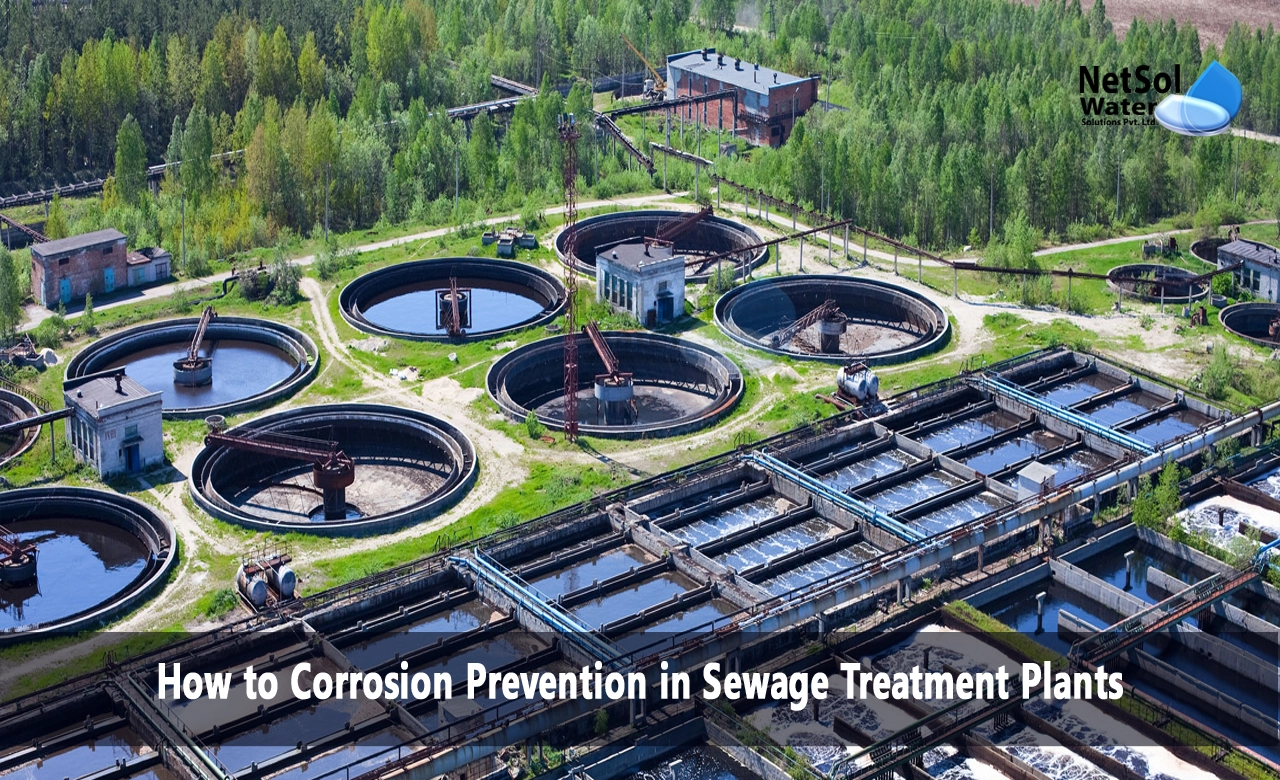How to Corrosion Prevention in Sewage Treatment Plants?
The sewage treatment process utilizes extensive infrastructure and equipment that are constantly exposed to corrosive substances. The complex biological, chemical and physical environments found in the various stages of treatment contain elements that can damage exposed surfaces and degrade structural integrity over time. Implementing effective corrosion prevention strategies is crucial for maintaining assets, ensuring design life, and preventing failures that compromise plant operations and compliance. We will explore the key corrosion risks in sewage treatment plant and provides an overview of prevention methods that can mitigate degradation.
Corrosion Mechanisms and Areas at Risk
Several elements drive the corrosion process in sewage treatment facilities. Oxidizing environments are created due to the use of aeration and chemical oxidants added during the treatment process. These expose metal structures to oxidative degradation. Acids like sulfuric, nitric, and hydrochloric acid are generated through biological digestion and chemical disinfection steps, lowering pH and dissolving protective surface films. Hydrogen sulfide gas is produced during anaerobic digestion and sulfur-reducing bacterial metabolism. This sulfide gas combines with moisture to form sulfuric acid. Fats, oils and greases can also coat surfaces and retain corrosive moisture and contaminants. Additionally, high salt concentrations, ammonia, and cleaning chemicals all contribute to creating a highly conductive, corrosive environment. Equipment most at risk includes concrete tanks and channels, metal piping, pumps, valves, blowers, clarifier mechanisms, screw pumps, and access platforms. Focusing prevention efforts on these vulnerable and critical assets is key.
Corrosion Prevention in Sewage Treatment Plants
1· Protective Coatings and Linings
Applying protective coatings and linings provides a physical barrier between corrosive substances and the underlying infrastructure and equipment. Epoxy coatings offer excellent corrosion resistance and durability on metal components, concrete structures, plastic media biofilters and clarifier mechanisms. Rubber and polyurethane linings are suitable for areas with both corrosion and abrasion concerns, including pipes, anaerobic digesters, and aeration tanks. Fiberglass reinforced plastic (FRP) can be applied as panels or coatings to build durable, corrosion-proof tank and scrubber infrastructure. Specialized cementitious products are also available to re-line degraded concrete, providing protective mortars and grouts. Proper surface preparation, application procedures, cure times and periodic inspection and repair help maximize coating lifespan.
2· Cathodic Protection Methods
Cathodic protection actively counteracts corrosion by shifting the metal component to be protected to function as a cathode, limiting oxidation. Impressed current systems utilize inert anodes supplied with DC current to induce this change for pipes, tanks or other submerged metal assets. Sacrificial anodes made of more easily corroded metals like zinc or magnesium can be attached or buried near the structures to be protected. Both passive, low maintenance systems and active cathodic systems with monitors and controls are implemented. Careful design by corrosion specialists is required to avoid stray current issues where structures contact different soil environments.
3· Design and Material Selection
The corrosion resistance of infrastructure and components can be improved through careful design and material selection. Fiberglass, HDPE, PVC and other non-metallics are inherently resistant alternatives for tanks, pipes, and structures. Stainless steel alloys, nickel alloys, titanium, and copper-nickel offer enhanced resistance for metal components like valves and pumps. Specifying sacrificial anodes and shop-applied coating systems in new designsoptimizes performance. Corrosion-allowances can increase metal thickness to account for expected loss. Isolation, drainage, and ventilation also minimize corrosive exposure. When rehabilitating aged infrastructure, design improvements should be evaluated to enhance corrosion resistance.
4· Operations and Maintenance Strategies
Proactive operations and maintenance approaches provide additional corrosion mitigation. Aeration and chemical dosing can be reduced where possible to limit oxidative conditions, and pH optimally controlled. Flushing and cleaning systems frequentlypreventsbuildup of deposits. Frequent inspection of equipment allows early identification of corrosion damage, coatings failure or leaks so they can be addressed. Exercising valves and mechanisms prevents seizure. Isolating idle equipment using desiccants or coatings minimizes corrosion. A rigorous preventive maintenance program is key.
Conclusion
The complex and challenging conditions inherent in sewage treatment plants necessitate utilizing multiple corrosion prevention tools and techniques in an integrated strategy. Specifying corrosion-resistant materials, applying protective coatings and linings, implementing cathodic protection, optimizing process chemistry, and diligent operations and maintenance all work together to maximize equipment lifespan, minimize replacement costs, prevent unplanned downtime, and maintain safe, effective treatment processes. A comprehensive corrosion prevention approach provides a critical component of successful plant management and protection of capital assets.
Do you need an advice or assistance on selecting the best water and waste water treatment unit? We have solutions for all your problems!
Netsol Water is Greater Noida-based leading water & wastewater treatment plant manufacturer. We are industry's most demanding company based on client review and work quality. We are known as best commercial RO plant manufacturers, industrial RO plant manufacturer, sewage treatment plant manufacturer, Water Softener Plant Manufacturers and effluent treatment plant manufacturers. Apart from this 24x7 customer support is our USP. Call on +91-9650608473, or write us at enquiry@netsolwater.com for any support, inquiry or product-purchase related query.



